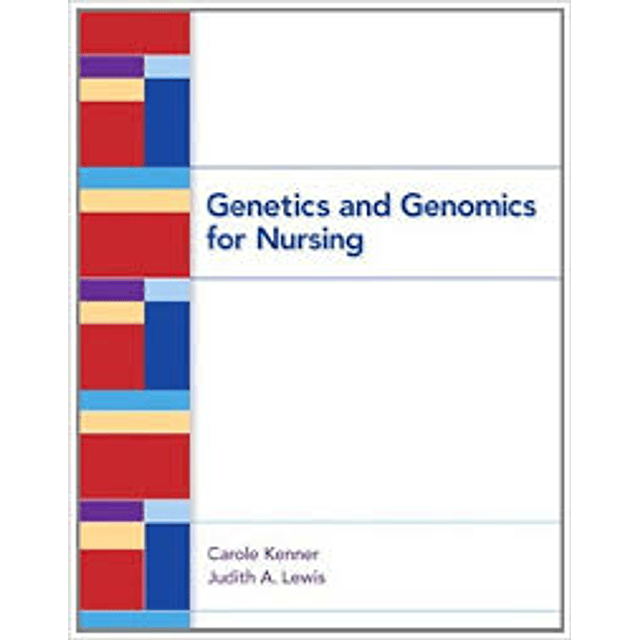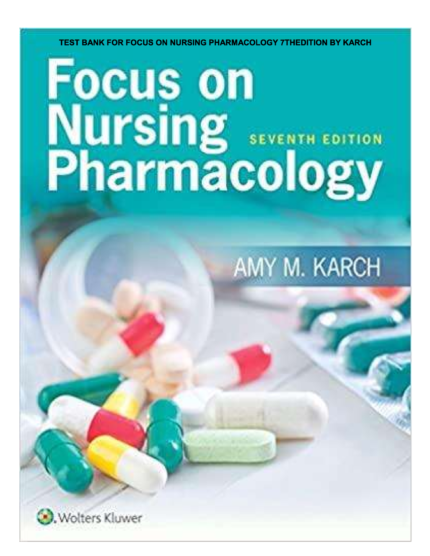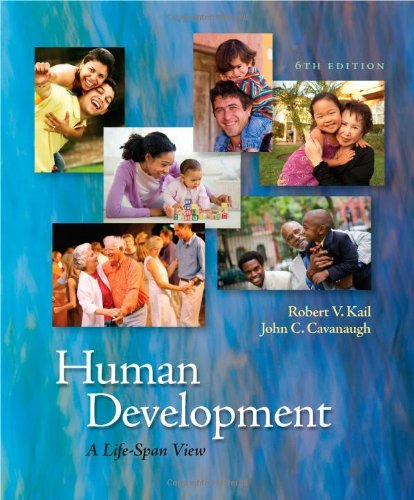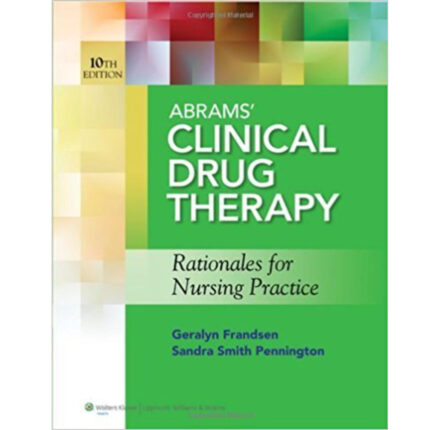Genetics And Genomics For Nursing, 1st Edition By Carole A. Kenne – Test Bank
Kenner Genetics and Genomics for Nursing, 1/E
Chapter 11
Question 1
Type: MCMA
Which statements regarding newborn screening programs would the nurse recognize as supporting the ethical principle of autonomy?
Note: Credit will be given only if all correct choices and no incorrect choices are selected.
Standard Text: Select all that apply.
- Mandatory newborn screening programs should be standardized across all states.
- Parents should have the right to decide if their infant will undergo newborn screening.
- Newborn screening identifies some treatable conditions and serves to improve the life of the child.
- Newborn screening identifies some treatable conditions and serves to improve the health of the nation.
- Ideally the parents would decide which newborn screens are performed.
Correct Answer: 2,5
Rationale 1: Making newborn screening mandatory removes the right of autonomy or “the capacity for self-determination.”
Rationale 2: Strictly speaking, for the concept of autonomy to be upheld, the newborn should be making this decision. Because newborns do not have this capacity, parents serve as their surrogates. The parents must be competent to fill this role.
Rationale 3: This statement is a reflection of the paternalistic view of medicine. This view is one of knowing what is best for another, what they would logically desire, and what they see as an improvement in their life. The client’s autonomy is removed.
Rationale 4: This statement reflects beneficence or doing the most good for the most people.
Rationale 5: This statement reflects self-determination or autonomy. As the newborn lacks the capacity to make decisions, competent parents serve as surrogate decision makers.
Global Rationale:
Cognitive Level: Analyzing
Client Need: Health Promotion and Maintenance
Client Need Sub:
Nursing/Integrated Concepts: Nursing Process: Evaluation
Learning Outcome: 11-1: Discuss the history and controversies of screening large-scale populations.
Question 2
Type: MCMA
A state health department is planning to redesign its newborn screening program. The nurse charged with heading this initiative would identify which concerns about using the Wilson and Jungner Classic Screening Criteria to guide this work?
Note: Credit will be given only if all correct choices and no incorrect choices are selected.
Standard Text: Select all that apply.
- Interpretation of what is an “important health problem” is individual and therefore variable.
- The acceptability of tests to the population is variable.
- The issue of cost containment is not as important as it was when these criteria were developed.
- Today’s testing may have widespread implications.
- Screening tests are developing very rapidly.
Correct Answer: 1,2,4,5
Rationale 1: The discovery of new genetic diseases and the development of the capacity to test for them have changed thinking on what are “important health problems.” Should we test for every possible problem? Who decides which problems are important?
Rationale 2: What is acceptable to one population may not be to another.
Rationale 3: Cost containment continues to be a major concern for all of health care.
Rationale 4: In 1968, when Wilson and Jungner’s criteria were established, screening was limited primarily to results that affected the infant’s health. Today’s screening includes genetic testing that may have implications for other generations.
Rationale 5: Tests are developing rapidly, and time is needed to test their validity and reliability.
Global Rationale:
Cognitive Level: Analyzing
Client Need: Health Promotion and Maintenance
Client Need Sub:
Nursing/Integrated Concepts: Nursing Process: Evaluation
Learning Outcome: 11-1: Discuss the history and controversies of screening large-scale populations.
Question 3
Type: FIB
The nurse works in a state that follows the core conditions screening recommendations of the Secretary’s Advisory Committee on Heritable Disorders in Newborns and Children (SACHDNC). The nurse would inform a newborn’s parents that their child will be screened for ________ conditions.
Standard Text:
Correct Answer: 30
Rationale : The SACHDNC recommends 30 core conditions in routine newborn screening.
Global Rationale:
Cognitive Level: Applying
Client Need: Health Promotion and Maintenance
Client Need Sub:
Nursing/Integrated Concepts: Nursing Process: Implementation
Learning Outcome: 11-2: Describe the core conditions that are included in the newborn screen.
Question 4
Type: MCSA
A newborn’s screening tests indicate the presence of a hemoglobin disorder. Which assessment findings would the nurse expect in this newborn?
- Normal assessment
- Seizure
- Listlessness and inability to maintain thermal control
- Urine that smells like burnt sugar
Correct Answer: 1
Rationale 1: Children with a genetic hemoglobin disorder appear normal as newborns but begin to develop anemia in the first few months of life.
Rationale 2: Seizures would not be expected in an infant with a genetic hemoglobin disorder.
Rationale 3: Listlessness and inability to maintain thermal control are not expected findings in a client with a genetic hemoglobin disorder.
Rationale 4: This finding is associated with the amino acid disorder known as maple syrup urine disease.
Global Rationale:
Cognitive Level: Applying
Client Need: Physiological Integrity
Client Need Sub: Physiological Adaptation
Nursing/Integrated Concepts: Nursing Process: Assessment
Learning Outcome: 11-2: Describe the core conditions that are included in the newborn screen.
Question 5
Type: MCSA
The mother of a newborn states, “I am surprised that my baby is only being tested for 30 genetic diseases. When my son was born in another state he was tested for several dozen.” How should the nurse respond?
- “Each state controls how its newborn screening program works.”
- “Some states are more advanced than this one.”
- “Fewer tests are done now, but more diseases are included in those tests.”
- “The federal government has decided that not as many tests are needed now.”
Correct Answer: 1
Rationale 1: States are in control of their own newborn screening programs. The federal government makes recommendations only.
Rationale 2: A statement that implies the infant is receiving less than optimal care is not therapeutic.
Rationale 3: This is a false and misleading statement.
Rationale 4: States choose which tests are included in the newborn screen. The federal government makes recommendations only.
Global Rationale:
Cognitive Level: Applying
Client Need: Health Promotion and Maintenance
Client Need Sub:
Nursing/Integrated Concepts: Nursing Process: Implementation
Learning Outcome: 11-3: Discuss how newborn screening may differ between states.
Question 6
Type: MCSA
A public health nurse is addressing legislators on the topic of funding for newborn screening. Which topic should be this nurse’s priority?
- Increasing the number of diseases on the state’s standard screen
- Including screening for hearing loss in the state’s standard screen
- Legislation mandating that screenings not paid for by insurance are paid for with state money
- Ensuring that all parents are offered the opportunity to have their baby screened
Correct Answer: 4
Rationale 1: This may be an important goal but is not the priority.
Rationale 2: Hearing loss screening is already part of the screen in the majority of states. This is an important issue but is not the priority.
Rationale 3: This is not the priority.
Rationale 4: Every parent should have this opportunity and should be educated to make an informed choice.
Global Rationale:
Cognitive Level: Analyzing
Client Need: Health Promotion and Maintenance
Client Need Sub:
Nursing/Integrated Concepts: Nursing Process: Planning
Learning Outcome: 11-3: Discuss how newborn screening may differ between states.
Question 7
Type: MCSA
How would the nurse explain the process of newborn screening to new parents?
- “Your infant will be screened for 10 diseases in our lab and the rest of the samples will be sent to the state laboratory.”
- “We will collect two urine samples from your child for this screening.”
- “The screening will only require one blood sample.”
- “The screening sample will be drawn at your baby’s six-week check-up.”
Correct Answer: 3
Rationale 1: The sample is sent to the state laboratory for all testing.
Rationale 2: The screening is done with blood samples.
Rationale 3: A single blood sample is drawn for the screening.
Rationale 4: The newborn screening is done much earlier, generally at 24–48 hours of age.
Global Rationale:
Cognitive Level: Applying
Client Need: Health Promotion and Maintenance
Client Need Sub:
Nursing/Integrated Concepts: Nursing Process: Implementation
Learning Outcome: 11-4: Describe the role of the nurse and other health care professionals in the collection and interpretation of newborn screens.
Question 8
Type: MCMA
A couple took their newborn home from the hospital yesterday. The pediatrician’s office was notified this morning that the infant’s newborn screen was positive. What information should the nurse provide to the parents?
Note: Credit will be given only if all correct choices and no incorrect choices are selected.
Standard Text: Select all that apply.
- “You need to take your baby back to the hospital for examination.”
- “We don’t see many false positive screens, so we should take action quickly.”
- “I would like to schedule an appointment so that we can talk with you about this screen.”
- “We may want to schedule an appointment with a specialist.”
- “A second screening may be indicated.”
Correct Answer: 3,4,5
Rationale 1: It is not likely that the baby needs immediate hospitalization.
Rationale 2: False positive screens do occur. There is no need to alarm the parents.
Rationale 3: The primary care provider is responsible for initial counseling.
Rationale 4: The services of a genetic specialist or a specialist in the specific diseases of concern may be necessary.
Rationale 5: In some cases, the infant is screened a second time.
Global Rationale:
Cognitive Level: Applying
Client Need: Health Promotion and Maintenance
Client Need Sub:
Nursing/Integrated Concepts: Nursing Process: Implementation
Learning Outcome: 11-4: Describe the role of the nurse and other health care professionals in the collection and interpretation of newborn screens.
Question 9
Type: MCSA
The parents refuse newborn screening for their infant, who was born this morning. What nursing action is indicated?
- Draw a sample for screening in case they change their minds.
- Discuss the purposes of the screen with the parents.
- Obtain a court order for the screening.
- Warn the parents that the pediatrician may refuse to care for the infant if screening is not performed.
Correct Answer: 2
Rationale 1: Drawing a sample without consent is not ethical.
Rationale 2: The nurse should attempt to offer additional education to these parents.
Rationale 3: If the parents refuse the screen, nothing else can be done.
Rationale 4: Threatening the parents and indicating care will be withdrawn is not ethical.
Global Rationale:
Cognitive Level: Applying
Client Need: Health Promotion and Maintenance
Client Need Sub:
Nursing/Integrated Concepts: Nursing Process: Implementation
Learning Outcome: 11-5: Discuss ethical principles as they pertain to the newborn screen and other population-based screening programs.
Question 10
Type: MCSA
Members of an obstetrical practice group have decided to screen all pregnant women for drugs, alcohol, and nicotine. What is the most important aspect of planning for this screen?
- Preparing a detailed informed consent form
- Identifying which insurance carriers will pay for this testing
- Publicizing the intention to do this screening
- Securing the most accurate testing available
Correct Answer: 4
Rationale 1: Informed consent is very important but is not the highest priority.
Rationale 2: Payment is an issue but is not the priority.
Rationale 3: The group may want to publicize this plan so that women who do not wish to be screened will seek prenatal care elsewhere. This is not the priority action.
Rationale 4: False positive results from this testing could be devastating to the mother and her relationships with other family members. Accuracy is the priority.
Global Rationale:
Cognitive Level: Analyzing
Client Need: Health Promotion and Maintenance
Client Need Sub:
Nursing/Integrated Concepts: Nursing Process: Planning
Learning Outcome: 11-5: Discuss ethical principles as they pertain to the newborn screen and other population-based screening programs.













Reviews
There are no reviews yet.